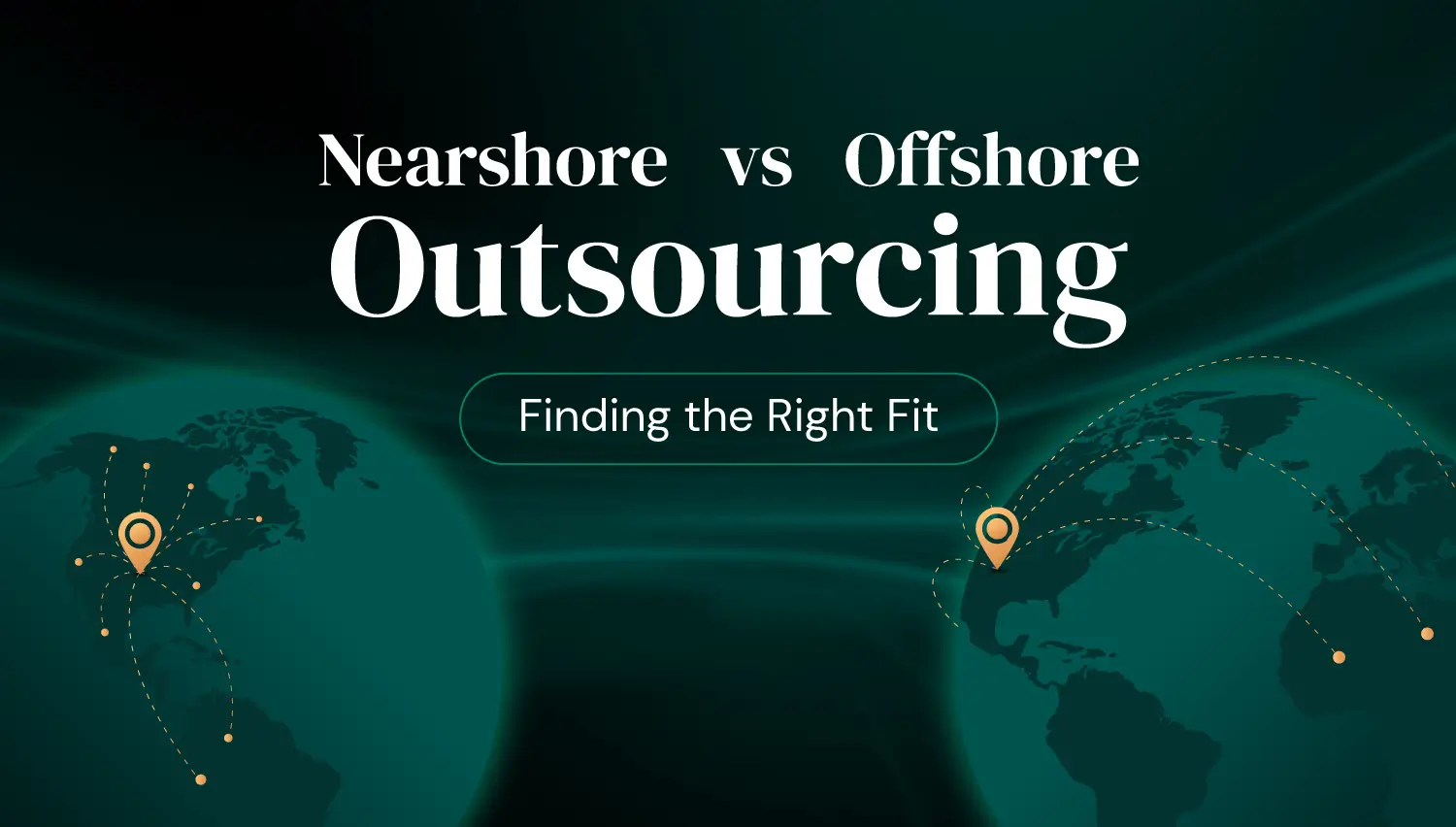A few years back, I was working with the founder of a boutique marketing agency who'd slammed headfirst into that classic scaling wall. Half her week vanished into client scheduling, research tasks, and taming a chaotic inbox. None of which was the best use of her time as the person meant to drive growth.
She called me up, sounding exhausted, convinced her only option was hiring another full-time, in-house coordinator. But neither her budget nor her office space could stretch that far.
Instead, I suggested she try bringing on a virtual assistant. A couple of weeks later, we'd sourced and onboarded a VA skilled in project management tools, client communication, and research. And it changed everything.
Her new VA took over the daily grind of operational tasks, freeing up at least 15 hours a week so she could zero in on client strategy and new business development. That year, the agency's revenue jumped nearly 40%. No extra office costs, no burnout, and no overstretched team.
That's the kind of power a virtual assistant can bring to the table.
Why Virtual Assistants Are a Game-Changer for Growing Businesses
At the heart of it, a virtual assistant (VA) is a skilled professional who works remotely to tackle everything from admin tasks to specialized work like social media management, research, customer service, or sales support.
In my years in recruiting, I've watched VAs help founders, COOs, and hiring managers claw back precious hours and operate far more strategically.
Sure, cost savings are usually the first reason leaders consider a VA. Compared to hiring someone locally full-time, you're often getting top-notch skills at a fraction of the price, especially when you tap into global talent. No expenses for extra office space, equipment, or benefits. It's a strategic choice for startups or expanding businesses intent on keeping costs in check.
But honestly, the bigger win is flexibility. You can start with just a few hours a week and scale up when your workload demands it or bring in help for busy seasons without locking yourself into a long-term hire. That kind of agility is a lifesaver for businesses dealing with shifting workloads or uncertain markets.
And let's not overlook expertise. Plenty of VAs have specialized skills, whether that's advanced CRM know-how, multilingual support, or sharp data analytics. For business leaders (and my clients), that means staying laser-focused on high-value work while trusted professionals keep the operational wheels turning.
In my experience, the best VAs aren't just an extra pair of hands. They're a force multiplier, helping businesses grow smarter, stay nimble, and preserve leadership bandwidth for what truly matters.

Identifying Tasks to Delegate
One of the biggest myths I see among founders and hiring managers is the idea that they "don't have enough work" to justify hiring a VA.
Not long ago, I worked with a SaaS startup CEO who swore he was managing just fine on his own. But when I asked him to write down everything he'd done that week, he ended up staring at two pages of tasks, and half of it was low-value work, eating up his time.
That's why the first step in working with a VA is auditing your own workload. I often tell clients to spend a week tracking every task they handle. Which ones absolutely require your expertise? And which could you pass off without risking quality or security?
Patterns emerge fast when you look at the data. Anything that drains hours but doesn't directly generate revenue or innovation is prime territory for delegation.
So what kind of tasks can you actually hand off? In my recruiting work, these are the categories where businesses usually see the biggest payoff:
- Administrative support. Calendar juggling, travel bookings, meeting notes, formatting documents. Even just a few hours a week can ease the leadership load significantly.
- Customer service and inbox management. Handling routine emails, managing CRM updates, fielding customer inquiries. A skilled VA can handle the front lines professionally and only escalate what really needs your attention.
- Social media and marketing tasks. Scheduling posts, replying to followers, gathering analytics reports, or helping with basic content creation. Marketing teams often benefit from VAs who get the brand voice and execute consistently.
- Research and data entry. Market research, building prospect lists, competitor analysis, maintaining spreadsheets. Critical work, but time-consuming and perfect for a detail-oriented VA.
Delegation isn't just about clearing busywork off your plate. It's about protecting your time and mental energy for decisions and relationships that truly move your business forward.
From what I've seen in recruitment, leaders who learn to delegate early don't just scale faster, they also stay a lot saner along the way.
Finding the Right Virtual Assistant
When it comes to hiring VAs, I've watched even experienced leaders fall into the same trap: thinking any VA can handle any task.
Years ago, one of my clients, the COO of an ecommerce company, hired a VA through a random online ad to help manage inventory data. The VA turned out to be excellent at general admin but struggled with spreadsheets, which cost the team weeks of cleanup. Painful lesson learned: matching the right person to the right work matters.
So, first things first, where should you look? Here's what I usually tell clients:
- Agencies and staffing partners. These firms specialize in sourcing, vetting, and managing VAs. It's pricier, but you get lower risk, quicker placements, and ongoing support if problems crop up. For busy leaders who don't have time to handle recruiting themselves (or who want help ensuring cultural fit), it's often the safest choice.
- Freelance marketplaces. Platforms like Upwork and Fiverr are treasure troves of talent with every skill imaginable. Rates can be very competitive, but you'll have to handle screening, interviews, and quality control yourself.
- Referrals and networks. Honestly, one of my favorite sourcing methods. Ask peers, industry groups, or LinkedIn contacts for recommendations. A trusted referral can save you a ton of vetting time.
Once you've figured out where you're searching, it's time to evaluate fit and expertise. In my recruiting practice, I always coach clients to dig deeper than a resume or hourly rate. By asking the right questions when interviewing a VA, you can find someone who can not only do the tasks you need them to, but who you will get along well with.
Look for:
- Experience and skills. Has the VA done similar work? Do they know specialized tools you rely on, like CRM systems, design software, or analytics dashboards?
- Communication and language. Especially crucial for client-facing roles. Test written and verbal communication during interviews. Look for clarity, responsiveness, and professionalism.
- Cultural and time zone fit. Time differences aren't necessarily a dealbreaker, but you need to know if your VA can overlap with your hours or if asynchronous work will suffice. Cultural norms also play a role in communication style and expectations.
In my experience, the best VA partnerships happen when leaders hire intentionally. You're not just buying hours, you're building a working relationship that can protect your time, sharpen your focus, and help your business grow.

Effective Onboarding Practices
Not long ago, I worked with the founder of a fintech startup who was hiring a VA to handle investor relations materials and research. He was understandably nervous about trusting sensitive financial data to someone overseas.
So, we took a careful approach. Before the VA's first day, we built a detailed onboarding plan with documented processes, secure access protocols, and frequent check-ins.
By the end of the first month, that VA was producing polished reports and handling complex investor updates with barely any oversight. The founder later told me it felt like he'd cloned himself, freeing him up to focus on fundraising and partnerships instead of drowning in spreadsheets. That's what great onboarding can do.
1. The first key to smooth onboarding is setting crystal-clear expectations.
Never assume your VA will "just know" how you want things done. Define roles and responsibilities in writing, from who handles which emails to how reports should look to how quickly you expect updates. And explain the bigger picture: your business goals, why certain tasks matter, and how their work fits into the larger mission.
2. Next, make sure your VA has the right tools and resources.
I always advise clients to plan how they'll communicate and manage projects. Will you be chatting on Slack, emailing, or jumping on video calls? Are you organizing work in Asana, ClickUp, or Trello? Spell it out, and give your VA access to the systems they'll need so they're not left guessing or inventing processes from scratch.
3. Equally important: document your processes early.
If you've never written down how you like tasks done, now's the time. Create standard operating procedures (SOPs) for recurring work. Include templates, file-naming conventions, and step-by-step guides for the stuff you expect your VA to handle consistently.
4. And don't forget about security.
Decide what data your VA truly needs access to, limit sensitive info wherever possible, and use password managers, secure file-sharing, and NDAs to keep your business protected.
From my recruiting perspective, a VA's technical skills are only half the equation. When leaders invest in onboarding, they're not just training someone; they're laying the foundation for trust and a lasting, productive partnership. And when that's done right, a VA can become one of the most impactful members of your team.
Building a Productive Working Relationship
One of my clients, a founder running a remote-first creative agency, once told me that hiring a VA completely changed her business. But she was quick to point out that it only worked because she chose to invest time and effort into the relationship.
Instead of keeping her VA on the sidelines, she brought them into weekly team calls, shared the company's bigger goals, and offered regular feedback. Before long, her VA wasn't just handling tasks; they were helping her rethink how the agency worked with clients.
Solid communication is the backbone of any VA relationship. Don't leave it to chance. Put quick check-ins on the calendar, even if they're just ten minutes. Agree on how you'll talk day-to-day. Slack, email, voice notes, whatever feels natural. And set ground rules around response times so nobody's left hanging, wondering if something fell through the cracks.
Accountability is huge, too. Set clear, measurable goals, not just vague to-dos. And rely on tools like Asana, Trello, or ClickUp to divide up work and keep everyone in the loop. Those platforms save you from micromanaging and make everything transparent.
Here's one thing I've noticed time and again: trust changes everything. Treat your VA as a teammate rather than just a pair of hired hands. Be respectful of cultural differences. Encourage them to speak up if something's unclear. And share the wins, no matter how small, so they feel connected to your business.
In my experience, the VAs who feel genuinely included are the ones who bring fresh ideas, take initiative, and grow into true partners, not just task-doers.
At the end of the day, investing in the relationship isn't just a leadership buzzword. It's how you unlock everything a great VA has to offer and how your business keeps moving forward.
How Expert Help Can Simplify the Process
I've spent years helping businesses hire talent worldwide, and one thing I've learned is this: while hiring a VA can be transformative, doing it right takes time, care, and expertise. Between finding candidates, checking skills, sorting out security, and ensuring a good cultural fit, it's easy for busy leaders to feel overwhelmed, or worse, settle for the wrong hire.
That's where working with a specialized recruitment partner can save a lot of headaches.
An experienced partner can help you:
- Connect quickly with pre-vetted VAs who already match your industry and needs
- Reduce hiring risks through thorough screening and references
- Save time with proven onboarding processes and remote management know-how
- Navigate contracts, payroll, and local laws if you're hiring internationally
At Somewhere, we help founders, COOs, and hiring managers build strong remote teams, including virtual assistants, who help free up your time and let you focus on growing your business.
Thinking about hiring a VA? Or just curious if it's the right move for you? Reach out to Somewhere. Fill out the contact form below, and let's chat about how we can help you build a team that makes scaling smoother and a whole lot smarter.







.avif)
.webp)





